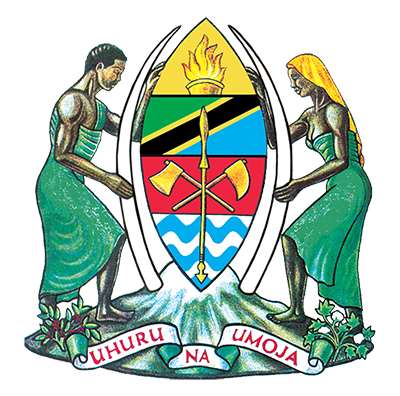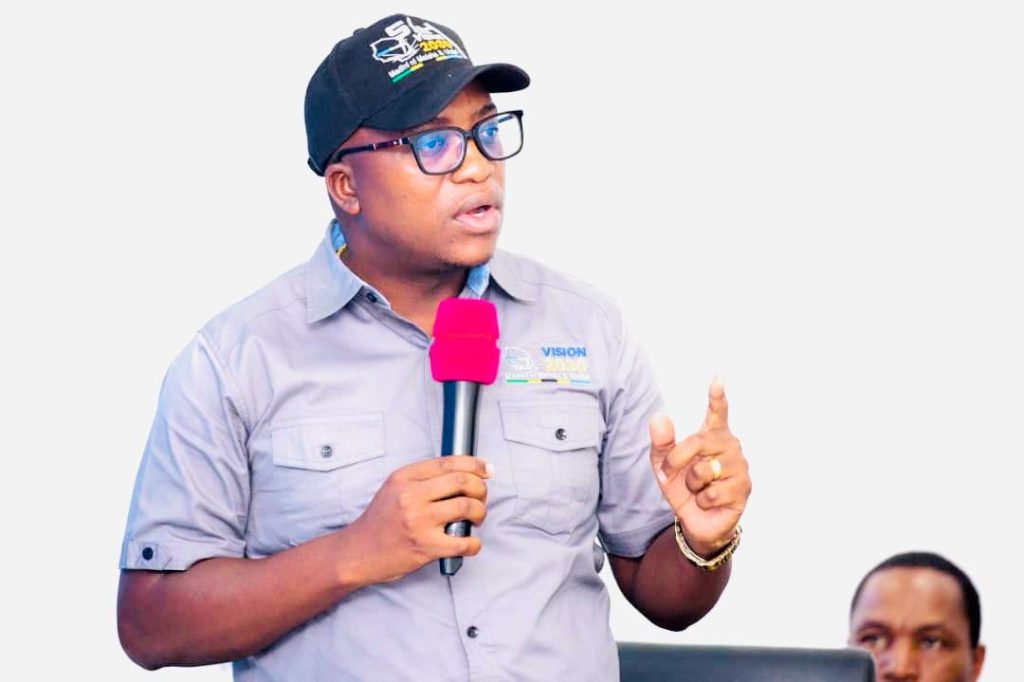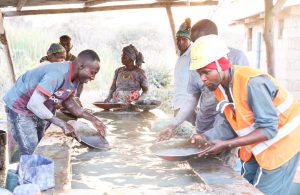Three years of President Samia……….
42 mineral markets and 99 buying centers have been established.
The speed of issuing mining licenses has increased from 5,094 in 2018/19 to 9,642 in 2022/23.
Collections have tripled from 213.3 billion shillings in 2016/17 to 677.7 billion shillings in 2022/23.
“Minister Mavunde Earns High Praise from Small-Scale Miners for Sector Support”
To ensure the Mining Sector significantly contributes to the country’s economic growth, the Government has made various efforts, including amending the Mining Law of 2010. The Mining Commission was established under the Mining Act 2010, as amended by the Written Laws (Miscellaneous Amendment) Act 2017.
The Commission came into existence through Government Notice No. 27 issued on July 7th, 2017. It has assumed all operational functions previously performed by the Minerals Division under the Ministry of Energy and Minerals, as well as those carried out by the Tanzania Minerals Audit Agency (TMAA) and Tanzania Diamond Sorting Organization (TANSORT).
Explaining the responsibilities of the Mining Commission briefly, Eng. Yahya Samamba, the Executive Secretary of the Commission, explains that they include issuing and managing mining licenses, overseeing exploration and mining activities, as well as conducting inspections of mines and the environment.
Additionally, while commending the efforts made by the President of the United Republic of Tanzania, Hon. Dr. Samia Suluhu Hassan, Engineer Samamba highlights that since the establishment of the Mining Commission, many citizens have observed significant changes in the Mining Sector and have gained increased confidence in both the President and the Government as a whole.
Explaining the status of revenue collection before and after the establishment of the Commission, Eng. Samamba elucidates that revenue collection increased from 213.3 billion shillings during the financial year 2016/17 to 677.7 billion shillings during the financial year 2022/2023.
“During the financial year 2022/2023, as the Mining Commission, we were given the target of collecting 822 billion shillings and succeeded in collecting 677.7 billion shillings, achieving 82.45%. In the period of the financial year 2023/2024, we have been tasked with collecting 882 billion shillings, a target I firmly believe we will surpass,” emphasizes Eng. Samamba.
Eng. Samamba attributes the secret of success in revenue collection to the patriotism and creativity of the employees at the Mining Commission Headquarters, Resident Mines Offices, and Mines Resident Offices, as well as the excellent cooperation from the leaders of the Ministry of Minerals.
Furthermore, discussing the mineral markets established in the country, Eng. Samamba explains that they were set up as a means to assist small-scale miners in finding a reliable market for their minerals post-mining, enabling the Government to generate income and obtain accurate statistics on minerals produced by small-scale miners. The aim is to sell minerals according to the indicative prices provided by the Mining Commission, based on global market trends and to control the smuggling of minerals by unscrupulous miners and traders.
He adds that up to now, the Mining Commission has established 42 mineral markets and 99 buying centers across the country, which have increased the contribution of small-scale miners to revenue collection from five (5) percent to forty (40) percent in 2022/2023.
He emphasizes that mineral markets have significantly reduced the speed of mineral smuggling and have introduced competition among mineral dealers through these markets and buying centers.
Explaining the Government’s strategies in controlling mineral smuggling and ensuring the increasing value of tanzanite, Eng. Samamba states that in 2018, the Government decided to construct the Mirerani wall in Simanjiro District, Manyara Region, which has significantly benefited both the miners and the Government.
He further explains that other strategies set by the Government include relocating mineral dealers from Arusha to Mirerani, with the aim of boosting the economy of the Mirerani area and curbing mineral smuggling.
In another aspect, explaining how the government addresses the issue of Tanzanian participation in the mining sector, he states that in recognition of its importance, in 2018, the government established various rules and guidelines to ensure Tanzanian involvement in exploration and mining activities. This involvement includes providing various services in mines such as transportation, agricultural products, security, insurance, law, banking, etc.
He states that until the year 2022, 86 percent of goods and services are provided by Tanzanian companies to large mining companies, while 14 percent are provided by foreign companies through a special permit issued by the Mining Commission. Regarding employment in the mines, 96 percent are Tanzanians, while foreign nationals make up four (4) percent.
“It should be understood that no company is allowed to import goods or services from abroad without obtaining permission from the Mining Commission. Our goal is to ensure that every Tanzanian benefits from the Mining Sector,” emphasizes Eng. Samamba.
In another aspect, the Mining Commission has been carefully managing to ensure that mining companies provide services to the surrounding community (CSR) as directed by the Mining Law.
Eng. Samamba emphasizes that the issue of safety in mines cannot be overlooked for the success of the Mining Sector. Recognizing this, the Mining Commission, through the Mines Inspectorate and Environment Department, has been conducting regular inspections in mines as well as providing education.
He continues by mentioning other achievements, including the increase in the issuance of mining licenses from 5094 licenses in the financial year 2018/2019 to 9642 licenses in the financial year 2022/2023.
He adds that the contribution of the Mining Sector to the National GDP increased from 4.4 percent in 2017 to 9.1 percent in 2022.
Eng. Samamba concludes by stating that many foreign companies have continued to show interest in investing in the Mining Sector due to the great work done by the President of the United Republic of Tanzania, Dr. Samia Suluhu Hassan, in advertising the opportunities available in the country.
Speaking on behalf of small-scale miners in Tanzania, Kulwa Mkalimoto, the Chairman of the Dodoma Regional Miners Association (DOREMA), extended congratulations to the Minister for Minerals, Hon. Anthony Mavunde, for his support of small-scale miners and for addressing the challenges they have encountered in the mineral sector.
“The Minister of Minerals has been actively visiting small-scale miners in their mining areas, listening to their challenges, and addressing them through the Mining Commission. This approach has significantly built trust among us in the mineral sector and has attracted more Tanzanians to participate in the mining industry,” he emphasized.






